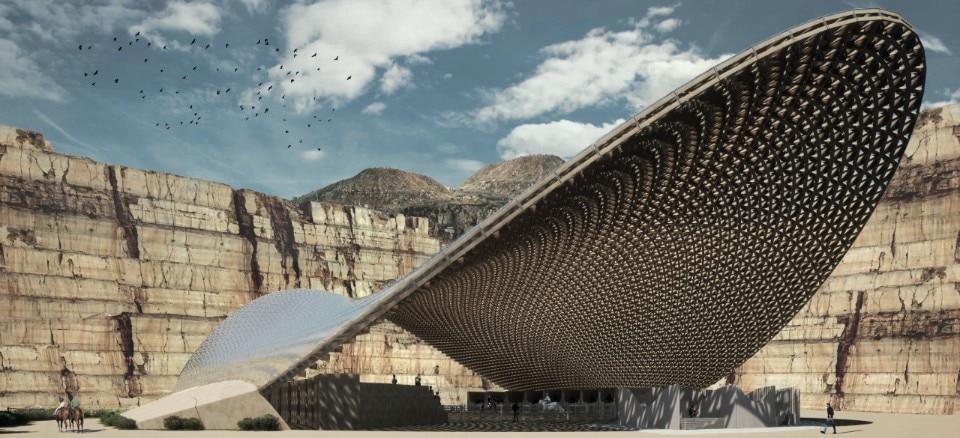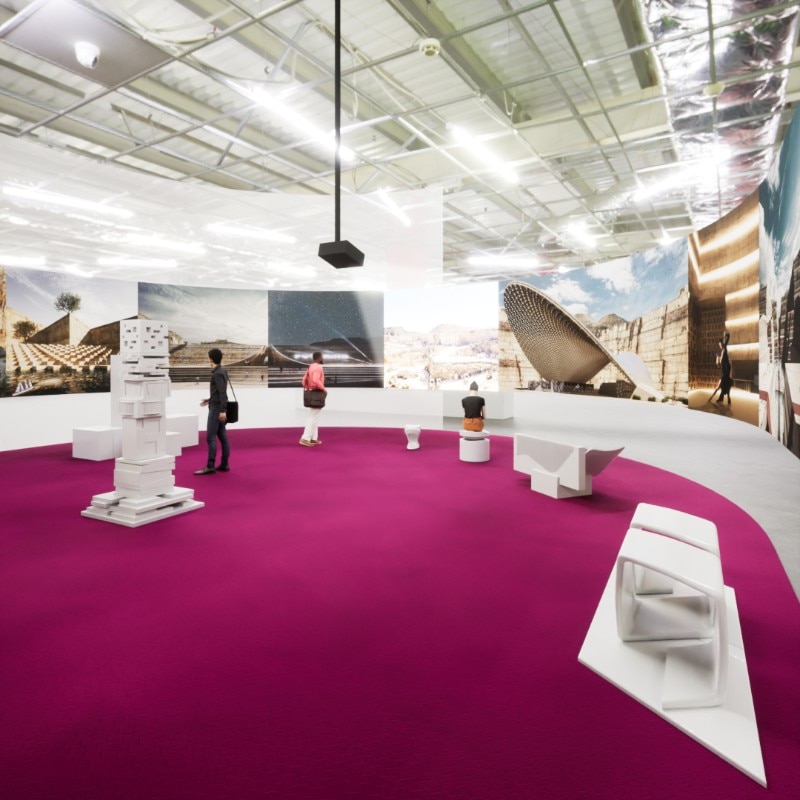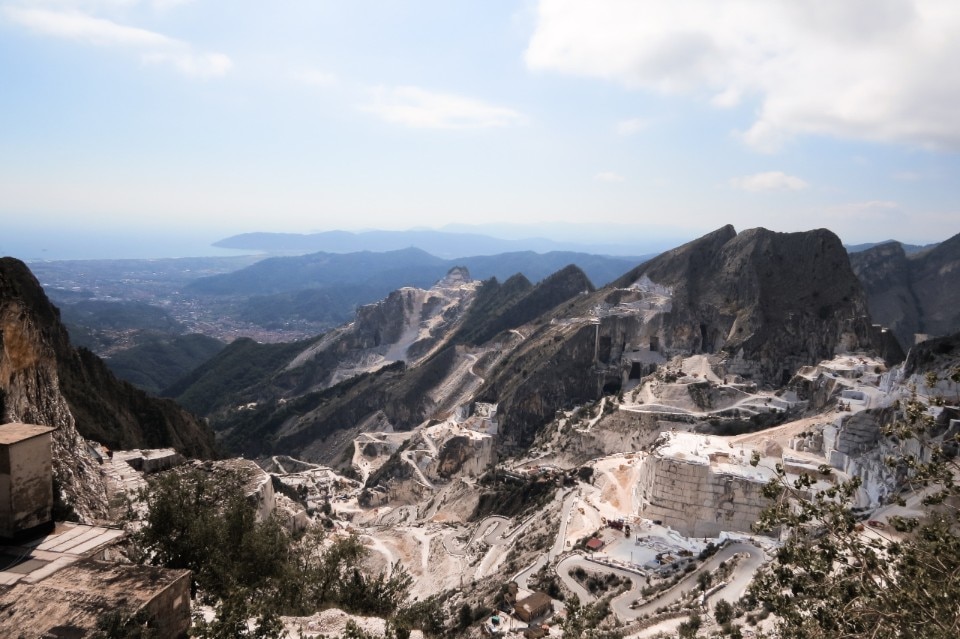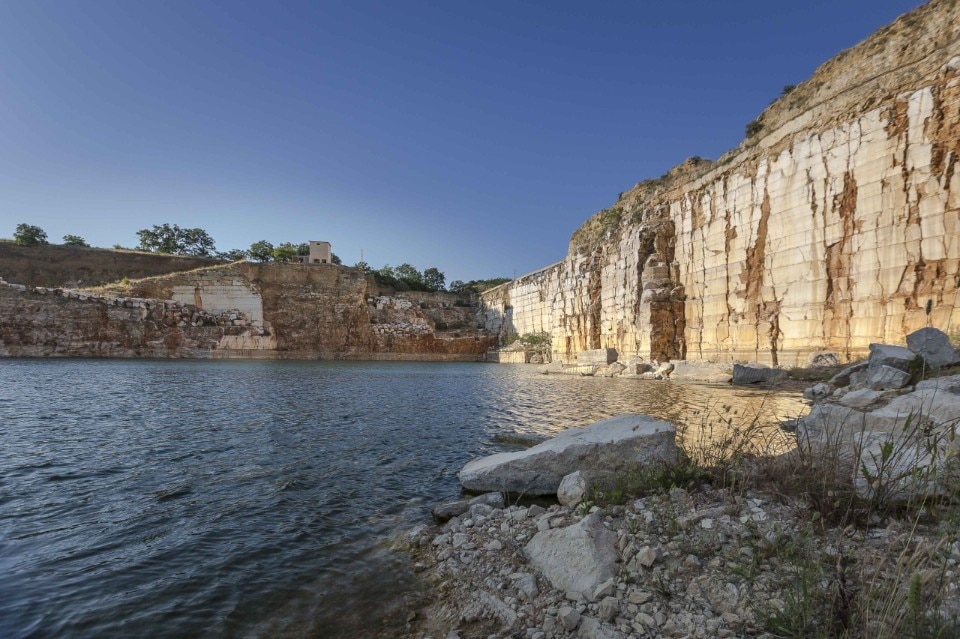Marmomac, the world’s leading trade fair dedicated to natural stone, is returning to Verona from 27 to 30 September. Once again, this year, during its 56th edition, the event is reaffirming its commitment to education through a series of cultural activities involving the academic world. “The Polytechnic University of Bari is profoundly linked to Marmomac,” says Giuseppe Fallacara, architect and professor at the Faculty of Architecture of the Polytechnic University of Bari. “After Carrara, Apulia is the second most important marble quarrying basin: this area is strongly tied, both in historical and geographical terms, to stone. Stone has been a major theme at the University of Bari since its establishment, and the collaboration with Marmomac is a long-standing relationship that started in the late 1990s and continues to this day”.
Giuseppe Fallacara, together with Domenico Potenza, professor at the Department of Architecture of the D’Annunzio University of Chieti-Pescara is the curator of the “Marmomac Meets Academies” exhibition for the 2022 edition of the trade fair. “The first exhibitions made in collaboration with Marmomac involved the outcome of several courses throughout Italy aimed at designing with stone,” continues Fallacara. “Since 2005, the complexity of the exhibitions has increased, and alongside graphic development, prototyping has been added. The universities have started to collaborate with companies to bring to the exhibition not only stone product design elements but also architectural ones.”
This year’s exhibition addresses the theme of Discovering Italy: University research and the landscape of public urban spaces, an itinerary through stone materials and the urban landscapes of some Italian provinces together with major Italian and foreign university experiments including the Catania University, Basilicata University, “G. d’Annunzio” University of Chieti and Pescara, La Sapienza University in Rome, Bari Polytechnic University, Camerino University, the Verona Academy of Fine Arts, Technische Kaiserslautern University, the New York Institute of Technology, Polis University and the Massachusetts Institute of Technology.
The exhibition testifies to the power (over time) of natural stone, which can be taken as a landmark to develop a special relationship between university research and experimentation, between the humanistic spirit and the advanced technologies provided by the digital revolution brought about by the material transformation companies in Italy. The exhibition is distributed through different itineraries, along the territory of the Italian province, which interact with the story. There are three main themes: stone landscapes, urban landscapes, and experiments.
“The protagonists are 16 prototypes developed by the Italian and international universities that carry out research on natural stone in collaboration with other companies in the stone sector. This exhibition is a journey that starts in Sicily and reaches Trentino, in northern Italy, to end in a circular room where a holographic projector shows images of innovative and contemporary spaces”, explains Fallacara who, when asked how important it is to train tomorrow’s designers to prepare them for the working world by making them aware of the potential of the stone sector, replies: “Making Italian universities, trade fairs and companies work together is the best way to improve the future of the Italian economy. Too often, the academic world is oriented towards the designer’s authorial self-satisfaction, a sign that is only valid in the form of design and not realisation. As an exponent of a new generation of academics, I believe that architecture must transform itself from an idea into a construction in order to fulfil its life cycle. I believe in a pragmatic idea of architecture, a new materialism made of knowledge and respect for the material to produce ecological sense. In the future, Italian universities will have to work more and more closely with companies, learning to get their hands dirty, interacting to create valuable works”.








